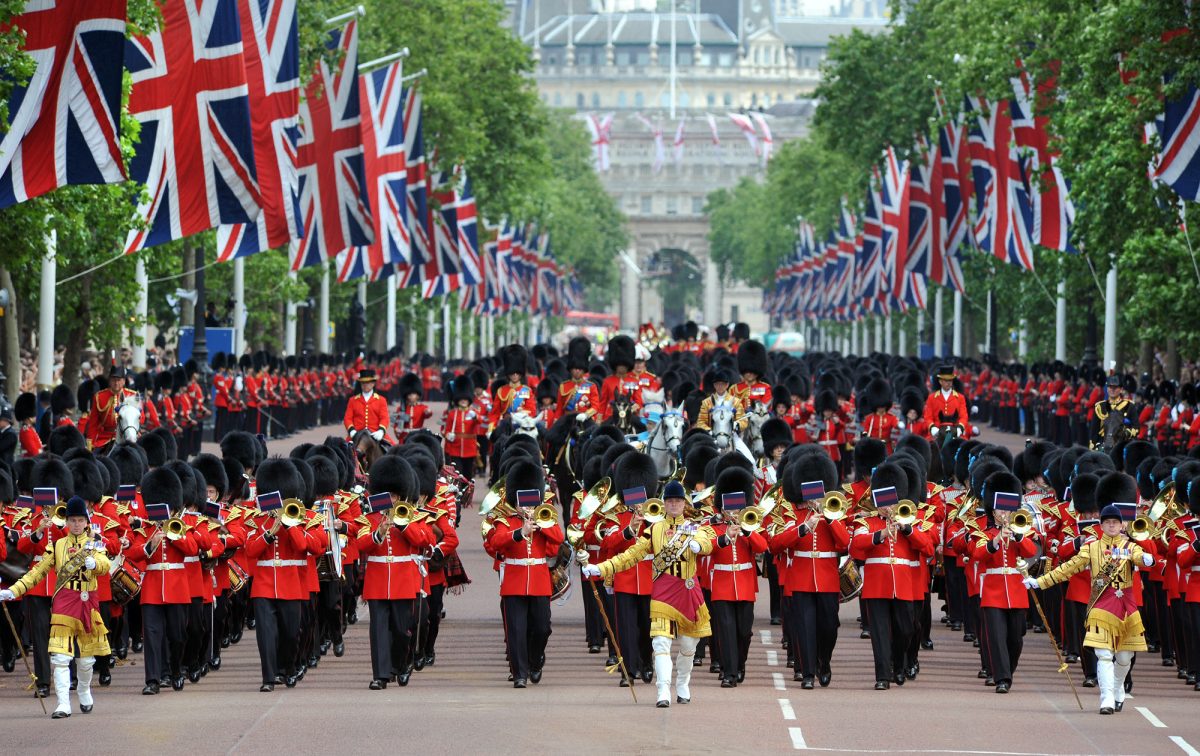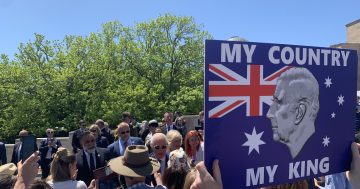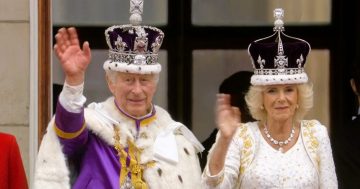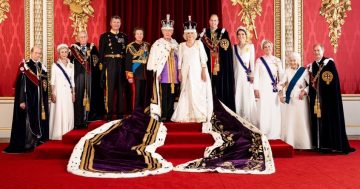
British soldiers and bandsmen march through London in the Queen’s birthday parade. Photo: Region.
A couple of weeks ago, while waiting for a connecting flight through London’s Heathrow Airport, I bought my mum a tin of shortbread biscuits adorned with a smiling Queen Elizabeth, made especially to commemorate Her Majesty’s 70 years on the throne.
One week later, the Queen died. Suddenly my tin of shortbread, which will be presented to mum on Christmas Day, took on added significance. My mum is a staunch monarchist and would have no hesitation in agreeing with former prime minister Tony Abbott that no death in human history will be as widely felt.
To be honest, I think that is a load of piffle. There are many corners of the globe that have but a passing interest in the life and times of Queen Elizabeth, and while I’m sure her passing will sadden them, they have already returned to their daily routines.
For example, I was in Poland at a sporting event when the news broke, and while the news obviously touched some, the majority moved on pretty quickly.
My colleague Ian Bushnell raised the obvious question following news of the Queen’s passing – is now the time to talk once again about Australia becoming a republic? Some say now is definitely not the time, but it’s not as if the events of the past week have taken us by surprise. The common consensus has always been that the time to revisit the issue will be when the Queen dies – and so here we are.
But two things to consider.
First, it’s always been assumed that younger Australians have far less connection and sentimentality towards the royal family. But we shouldn’t dismiss William and Kate’s role in giving the royals a more human face.
And King Charles is likely to be a much more activist head of state than his mother. The Queen was always a steady hand and a calming influence but never stuck her nose into anything that could ever be considered controversial.
Charles, on the other hand, is passionate about many issues, not least the environment. Indications are that he will continue to give his opinions and guidance on topics he feels are important. He has been very outspoken about a British Government proposal to transport illegal arrivals to Rwanda, which has raised more than a few eyebrows and caused considerable consternation in UK Government circles.
So while this approach, if adopted by the King, will horrify many traditionalists, it may well strike a chord with younger generations.
The second consideration – are we any closer to agreement on what we would replace the monarchy with? The consensus last time we voted on becoming a republic was that while many Australians wanted to get rid of the monarchy, the difficulties we were having reaching agreement on how our system would look post-royals led to a lot of no votes.
Do we end up with a “President”, elected by popular vote, heading down the path of the US system, which would make that person more powerful than the Prime Minister?
Do we leave it to our elected representatives to nominate our new President? And then what powers do we give this new President?
The other option, and maybe the easiest to sell, is to replace the Governor-General with – nobody. Do we really need someone to carry out a few ceremonial duties, especially if the election of said person is going to be so problematic?
It may all be irrelevant in any case. Roy Morgan conducted an SMS poll last week and found that 60 per cent of Australians favoured retaining the monarchy. Ten years ago, 55 per cent of Australians felt the same way.
With emotions running high after the Queen’s death, perhaps the result should not be surprising. But all this talk of Australians waiting for the passing of the Queen to finally cut ties with the monarchy may well have been misplaced.
For the time being, we should all sit back, enjoy our shortbread, and wait for common sense to prevail. Whatever form that may take.



















